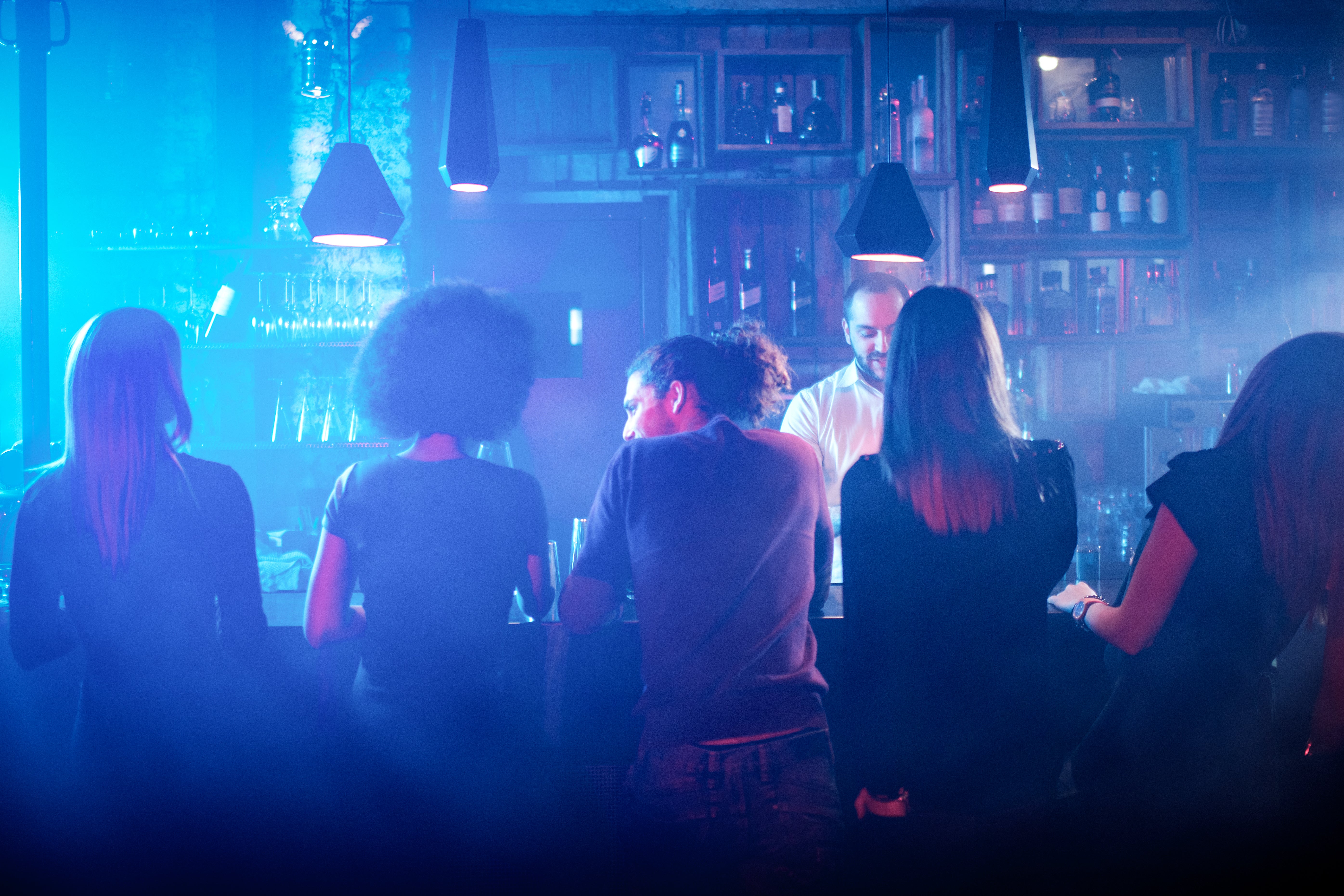Young women plagued with anxiety as drink spiking reports rise
‘Many women are taking extreme measures in an effort to protect themselves when venturing out,’ a campaigner tells Maya Oppenheim


It was 6am when Kate Burrington received a phone call from her daughter telling her she was in hospital after her drink was spiked. In five minutes, she was out of the house en route to Kingston Hospital in South West London.
“I went cold when she rang,” the 53-year-old tells The Independent. “When I arrived at the hospital, Jess was in the toilet still feeling terrible. I carried Jess out. She looked yellow. It was awful to see.”
Both Kate and Jess, her 18-year-old daughter, were left deeply shaken by the incident earlier this month. Kate is worried about her daughter going out at all and Jess is petrified of being spiked again, saying the experience totally changed her view of socialising.
Increasing numbers of young women are feeling anxious about going to bars, house parties and clubs in the wake of reports of women being injected with unknown substances in nightclubs and bars in recent weeks, experts tell The Independent.
“The doctor took a drug and urine test to check Jess was okay to go home,” Kate says. “I said: ‘Will this tell me what drug has been used?’ The doctor said they don’t do that anymore. It was annoying.”
Kate explained when she informed the doctor of Jess’ symptoms – the loss of control of her limbs, a “violently pounding head”, being “violently sick” and losing all sense of time – he said he suspected she had been spiked with Ketamine.
“He said he’d had a number of teenagers experience similar symptoms coming in saying ‘I think my drink had been spiked’,” she recalls. “He was so unsurprised. He was matter-of-fact.”
Fortunately Jess’ friend tested her with a home testing kit, which confirmed she’d been spiked with ketamine. “It was a mixture of anger and frustration,” her mother says. “I was furious. Jess was in a complete state. It sounds awful as Jess is nearly 19, but I’m now feeling so cautious and anxious about going away at the weekend.”
Recounting the night in question, Jess explains she had been at a house party with friends and thought it would be safe to leave her drink unattended.
“I kept putting my drink down and going off to speak to other people,” Jess recalls. “There were 35 people there. The majority were boys. There were only five boys I knew well. I did start to feel a bit sick in the middle of the party.”
She got in a cab to go home – feeling a little off but not unwell – before things abruptly took a turn for the worse.
“Something came over me,” Jess adds. “I lost control of all my limbs, and the lights outside the car looked wobbly and fuzzy. I completely lost control. My limbs felt really numb. I suddenly felt extremely nauseous. I fell out of the cab. I was sick all over the street.”
She says she then passed out for two and a half hours at her friend’s house before they ordered her an ambulance. “Honestly, I’ve never felt anything like that before,” Jess says. “Drinking alcohol is now a scary thing. I didn’t drink for eight days afterwards. I had a sip of mulled wine, I started feeling really anxious and physically sick too. I’m terrified of being spiked again.”
She said the ordeal has profoundly changed how she thinks about going out, adding she never worried about it previously.
“The recent spate of drink spiking and injecting and extensive media coverage has heightened awareness of the risk to young women of going out,” says Helena Conibear, chief executive of Alcohol Education Trust, “and not surprisingly made many anxious and nervous.”
Her comments come after The Independent recently reported that one in nine women in the UK say they’ve had their drink spiked. Exclusive research by YouGov also found one in three women said they know someone who has been a victim of drink spiking. Four in 10 women said they do not think police officers would take them seriously if they reported their drink had been spiked.
Meanwhile, the National Police Chiefs’ Council revealed around 200 drink spiking incidents have been reported across Britain in recent months. A number of police forces are looking into reports of people being spiked with injections, and three men have been arrested in Nottinghamshire and Lincoln on suspicions of spiking drinks or utilising injections in the last month.
Charities and campaigners recently told The Independent incidents are often “dismissed” by both the police and the NHS, which generally does not carry out blood and urine tests to check if victims have been spiked, and survivors are routinely being left with nowhere to turn.
“Drink spiking, as with any form of abuse against women, can have a significant impact on victims and survivors,” says Jayne Butler, chief executive of Rape Crisis England and Wales.
“The rise in reports of drink spiking are naturally leading women to become fearful for their safety, so activities they should be able to enjoy freely – such as going to house parties and nightclubs – have become yet another source of anxiety.”
“It is important for young people to go out for mental health, for finding yourself and a community you fit into”
She warned it is “exhausting” for women to have to “continuously worry about the threat of male violence”, and the repercussions will “undoubtedly” harm their mental health.
A spokesperson for the National Union of Students (NUS) said: “Students we have spoken to are understandably very anxious and panicked. Many women are taking extreme measures in an effort to protect themselves when venturing out, and in the absence of clear and verified information they are left to fear the worst.
“It is essential that each case is fully investigated quickly and findings are shared to fill the information vacuum and hopefully assuage concerns around widespread injection spikings”.
Mair Howells, a drink spiking victim who set up the campaign group Ivebeenspiked to raise awareness of the issue, says young women are more vulnerable to anxiety than older women due to heightened concerns of how others view them.
“It is important for young people to go out for mental health, for finding yourself and finding a community you fit into,” she adds. “It is not just about partying but also about going to concerts and exhibitions, and just being and living. We’ve done so much less of that in the 19 months of the pandemic, so it’s so important to have experiences. These shape us and who we are.”



Join our commenting forum
Join thought-provoking conversations, follow other Independent readers and see their replies
Comments